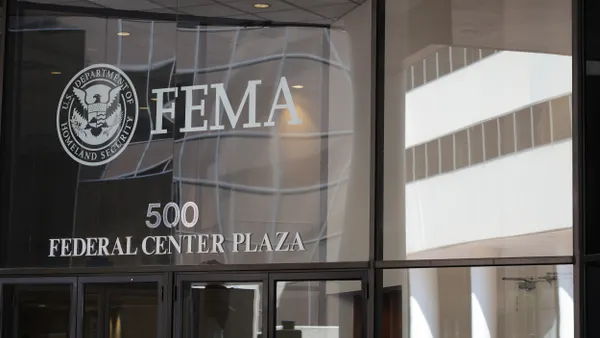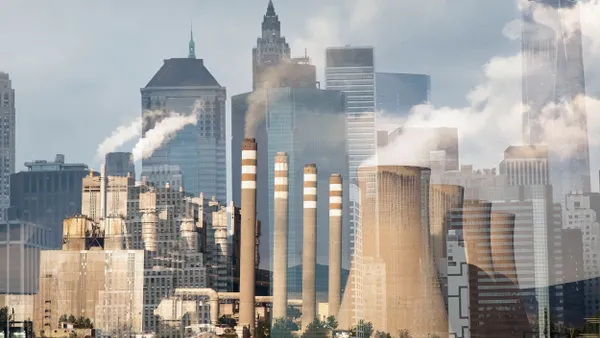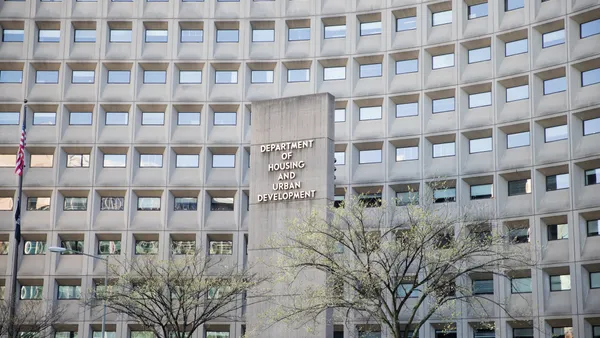Cities may need to consider setting nearer-term climate targets after newly shared findings show the window to address global warming is narrowing, urban sustainability leaders say.
That renewed urgency follows the United Nations' Intergovernmental Panel on Climate Change (IPCC) releasing the latest installment of its current report this week, which focused on impacts, adaptation and vulnerability. The report in part states that while some areas of the world have implemented adaptations to help cope with already present disruptions, the opportunity for climate-resilient development may soon become impossible in some places if warming exceeds 2 degrees Celsius.
Scientists are "speaking as clearly and loudly as possible, saying we are nearly at the end of the window to slow the impacts of the climate crisis, and that means we need to act with full force now," said Matt Petersen, board chair of Climate Mayors and CEO of the Los Angeles Cleantech Incubator.
But Petersen, who formerly worked as chief sustainability officer of Los Angeles, noted that cities have been saying that for a long time. Climate action plans and more tailored resilience and sustainability efforts that focus on curbing different sources of emissions have become common fixtures in many cities.
"We need to really double down and work faster. I think the opportunity for cities of course is to continue their progress towards their climate goals, and for corporations, cities and others also to look at: how do we set near term milestones [to add to] some of the longer-term carbon reduction goals that have been set," Petersen said.
The IPCC report, shared Monday, notes cities are increasingly dealing with acute dangers such as extreme heatwaves that aggravate air pollution, while continuing to face gradual threats like sea-level rise. It describes urban areas as epicenters of risks that simultaneously serve as key hubs for climate action, with continued potential for green buildings, renewable energy and sustainable transport systems.
The international body has shared dire projections in previous reports, but Petersen said the latest updates ought to give mayors or chief sustainability officers new leverage to put infrastructure dollars toward climate initiatives or up the ante on realizing a widespread transition to electric vehicles. He also said it should serve as a reminder to city leaders "to say 'we can't keep hitting the snooze button.'"
Cities are featured more prominently in this latest installment of IPCC's reports compared to past iterations. The working group was led by Debra Roberts, who has led sustainability initiatives in Durban, South Africa, and who notably brought more urbanists into the fold at IPCC, according to Yunus Arikan, director of global advocacy at ICLEI - Local Governments for Sustainability.
Even if a city isn't one of the more than 2,000 globally that has reportedly declared a formal climate emergency, it ought to think in those terms with planning, Arikan said. Overall, cities must think bigger. That includes considering how some cities were located or designed poorly in the first place, Arikan added. The report also pointed out that some attempts at adaptation have exacerbated inequities or led to other counterproductive, unintended consequences.
Arikan believes the pandemic has proven that radical change is possible, and local and national governments will need to put that momentum toward divesting from fossil fuels and diverting funds to climate adaptation efforts. "We have seen in the case of COVID, things we were not able to think about could be done. So we have to be much more innovative," Arikan said. "And I'm also very much convinced, especially [now that the world is feeling the heat], that that scientific basis now will give us the power to make political decisions more easily."
The next installment of the IPCC report, focused on mitigation, is slated to be released in early April.











